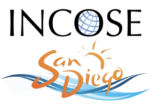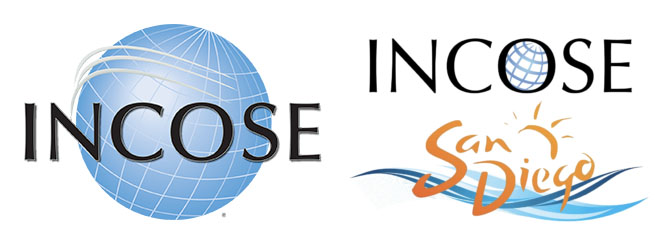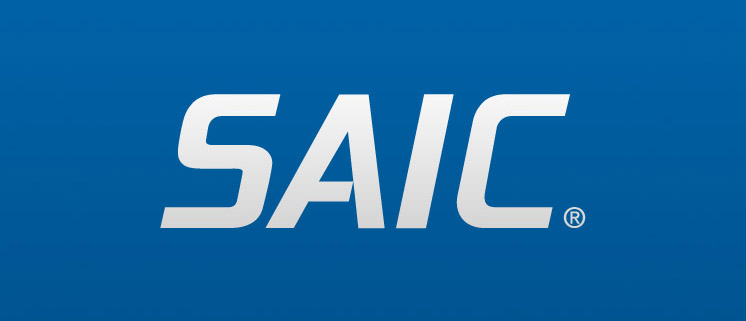IN-PERSON 2022 INCOSE San Diego Mini-Conference
Saturday, December 3rd, 2022
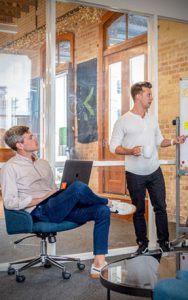

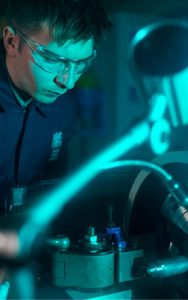

Register HERE
In-Person Event!
BACK in person for 2022! Join us for a day of stimulating thought and discussion with fellow professional systems engineers! This conference is centered on diverse systems engineering practices as applied to work and society. Please join us!!
WHEN: Saturday, December 3rd, 2022, from 8:45 AM to 4 PM
LOCATION: UCSD Extension, 6256 Greenwich Dr, San Diego, CA 92122 (Google Maps)
COST: INCOSE Members $40, Non-Members $60, Students $20. Presenters will also receive a $20 discount from list prices. Same day registration will be available, with $10 surcharge. PLEASE REGISTER BY FRIDAY MORNING (8am) to help us plan the right number of Saturday breakfasts and lunches – Thanks! Register HERE
REFRESHMENTS: A continental breakfast as well as a lunch of sandwiches and drinks will be provided and are included in the registration fee (if you have a vegetarian preference, please state in the Note section while registering).
* Important – Please register in advance; we will order some extra lunches, but if you do not register by Friday morning there’s a chance you won’t get a lunch.


About the Mini-Conference
Please join us!. Back again in-person, the San Diego chapter mini-conference for 2022! The day will include a dozen enlightening SE presentations, including a keynote by Dr. Paul Bevilaqua, former chief Engineer of the Skunk Works who played a leading role in the creation of F-35 Lightning II Joint Strike Fighter. In addition to the presentations, registration includes lunch and continental breakfast, free parking, and of course networking with fellow systems engineers from the greater San Diego area!

UCSD Extension, University City Campus
Student Resume Review
The mini conference will also offer quick evaluations of student resumes by experienced Systems Engineers. Students, please feel free to bring a copy of your resume (print is ideal) for discussion. Also, please be prepared to discuss the SE areas that most interest you (so we can offer helpful suggestions on how to break in). We look forward to the discussions!
Sponsors
Please thank our sponsors at the conference!
Interested in sponsoring opportunities? Please contact us at info@sdincose.org
All Sponsors receive:
– Thank you notice in our Dec 2022 INCOSE SD Newsletter. (We can use same image sent earlier, or sponsors are welcome to send us a different ad).
Draft Schedule (subject to change)
8:00 Registration, Vendors and Breakfast
8:45 Welcome to the Mini-Conference – Mr. John Thomas, San Diego INCOSE Chapter President
9:00 Introduction to ACOSE, SDSU’s Student Division of INCOSE – Ms. Therese Dela Rosa, President of ACOSE
9:15 Keynote Address – Dr. Paul Bevilaqua: Inventing the Joint Strike Fighter
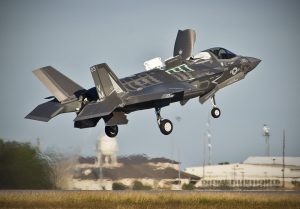
10:00 – 10:15 Break
10:15 – 11:00 Presentations
Room A: Current and Future Challenges in SE and Intelligent Systems – Michael Kremliovsky, PhD
Room B: Using Systems Thinking in Cross-Functional Teamwork to Create Innovation – Dr. Julia Taylor
11:00 – 11:45 Presentations
Room A: PyML Open Source System Modeling Library Introduction – Ray Madachy, PhD
Room B: The Case for a Science of Laws – Michael Martin
11:45 – 12:15 – Lunch and Sponsor Showcase
12:15 – 1:00 Presentations
Room A: When Less is More: Creating a Systems Engineering Essentials Course – John Wood, PhD and Glenn Tolentino, PhD
Room B: Law System Use Case Modeling – Ray Madachy, PhD
1:00 – 1:45 Presentations
Room A: Creating a Learning Lab to Improve the Engineering of Cyber Physical Social Systems – John Wood PhD, Jon Wade, PhD, Rick Gessner
Room B: Systems Engineering Validation of Legislative Status: Structural Analysis of Pennsylvania Statutes, 2021 Legislative Session – David Schrunk, MD
1:45 – 2:00 Break
2:00 – 2:45 Presentations
Room A: Demonstrating Resilience as Systems Engineers – Sri Harsha, PhD
Room B: Leaving No One Behind in Naval Digital Transformation – Chelsea Ballinger
2:45 – 3:30 Presentations
Room A: Cybersecurity RING – Regional Incentive for the Next Generation – Doug Magedman
Room B: Systems Engineering and Photography? You Bet! – Greg Bulla
3:30 – 4:00 Panel and Wrap-Up – Panel topic: Student engagement across the SE Enterprise
Presenter Bios and Presentation Abstracts
Keynote – Inventing the Joint Strike Fighter
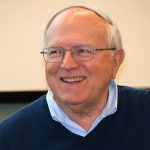
Paul Bevilaqua, PhD
Abstract: The F-35 Joint Strike Fighter was developed to meet the multirole fighter requirements of the US Air Force, Navy, Marine Corps, and our allies. The Air Force variant is a supersonic, single engine stealth fighter. The Navy variant has a larger wing and more robust structure in order to operate from aircraft carriers, while the Marine Corps variant incorporates an innovative propulsion system that can be switched from a turbofan cycle to a turbo shaft cycle for vertical takeoff and landing. Lockheed Martin won the Joint Strike Fighter competition when the X-35 demonstrator aircraft made a short takeoff, went supersonic, and then landed vertically, the first time any aircraft had accomplished this feat. This presentation will describe the technical and program challenges involved in developing the Joint Strike Fighter and show how an innovative idea became an international program with engineers from half a dozen countries developing a single replacement aircraft for multiple aircraft types.
Bio:
Dr. Paul Bevilaqua joined Lockheed Martin as the Chief Aeronautical Scientist and became Chief Engineer of the Skunk Works, where he played a leading role in creating the F-35 Joint Strike Fighter. He invented the dual cycle propulsion system that made it possible to build a stealthy supersonic VSTOL Strike Fighter, and suggested that conventional and Naval variants of this aircraft could be developed to create a common, affordable aircraft for all three services. He subsequently led the engineering team that demonstrated the feasibility of building this aircraft.
Prior to joining Lockheed Martin, he was Manager of Advanced Programs at Rockwell International’s Navy aircraft plant, where he led the design of VSTOL interceptor and transport aircraft. He began his career as an Air Force officer at Wright Patterson AFB, where he developed an ejector lift system for an Air Force Search and Rescue Aircraft.
He is a Member of the National Academy of Engineering and a Fellow of the American Institute of Aeronautics and Astronautics. He was voted Engineer of the Year by the readers of Design News Magazine. He was also awarded the Guggenheim Medal, a USAF Scientific Achievement Award, AIAA and SAE Aircraft Design Awards, AIAA and VFS VSTOL Awards, and Lockheed Martin AeroStar and Nova Awards.
He earned a BSc in Aerospace Engineering from the University of Notre Dame and a PhD in Aeronautics and Astronautics from Purdue University. He was also awarded an Honorary Doctorate by the University of Cranfield in Britain.
Current and Future Challenges in Systems Engineering of Intelligent Systems

Michael Kremliovsky, Ph.D, Sr. Director of Medical Devices and eHealth, Bayer
Abstract: Intelligent cyber-physical systems with growing degrees of autonomy have entered the markets. Are Systems Engineers ready for the next generation in complexity management? Did we even define the basic terms and scope in the engineering of intelligent systems? We will review the state of the field together and summarize where a major effort is still necessary before we can claim maturity.
Bio: Michael Kremliovsky started his academic career in astrophysics and continued in computational topology and novel methods of signal processing and pattern recognition. At the dawn of dotcom, he brought his experience of building high performance Linux clusters to a patient-physician communication startup before joining the medical device industry. Michael led embedded algorithms development in CardioNet, a pioneer in real-time wearable remote cardiac monitoring, and systems engineering in early implementations of closed-loop glucose control (“artificial pancreas”) in Medtronic. Michael joined Hospira’s infusion systems as a Chief Software Architect in 2011 to work on IV pumps wireless connectivity and clinical integration. Currently, Michael is with Bayer’s Pharmaceutical research as an expert on medical device and eHealth technology used for collecting data in clinical trials. Michael is a contributing member of Alliance for AI in Healthcare and a co-chair of IEEE Committee on Ethically Aligned Design for Autonomous and Intelligent Systems in Health.
When Less is More: Creating a Systems Engineering Essentials Course
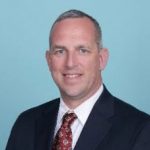
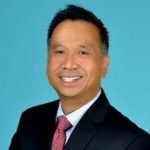
John Wood, PhD and Glenn Tolentino, PhD
Abstract: While examining ways to improve their existing in-house systems engineering boot camp, the authors asked themselves, “If we shorten the course from three days to one day, could we train three times as many engineers?” Adapting the agile concept of Minimum Viable Product, the authors started exploring what a Minimum Viable Class would entail for systems engineering at Naval Information Warfare Center Pacific. Soon thereafter, the authors launched their new “Systems Engineering Essentials” one-day course. This presentation will cover the curriculum differences between the three-day boot camp and the one-day essentials course, trade-offs considered, and student feedback received upon their completion of the new course.
Bios:
John Wood, PhD currently serves as Department Lead Systems Engineer at the Naval Information Warfare Center Pacific where he leads world-class engineers as they create future warfighting capabilities for the US Navy and other Department of Defense customers. Throughout his career, Dr. Wood has consistently applied his systems engineering and project management expertise to solve mission and safety critical challenges within healthcare, aviation, and defense. Dr. Wood holds a BS in Electrical Engineering from the US Naval Academy and a PhD in Systems Engineering from the George Washington University.
Glenn Tolentino, PhD has been an engineer, researcher, and innovator in the Command and Control (C2) and Enterprise Engineering competency throughout his career. He has been a major contributor in the design, development, and deployment of nationally recognized defense and intelligence systems. Glenn earned a BS in Applied Mathematics from San Diego State University. He also holds a MS in Software Engineering and a PhD in Computer Science from Southern Methodist University.
Creating a Learning Lab to Improve the Engineering of Cyber Physical Social Systems

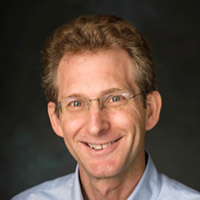
John Wood PhD, Jon Wade, PhD, Mr. Rick Gessner
Abstract: The Office of Naval Research (ONR) established decision superiority as one of four priorities for 2022. “As the cyber and the physical domains become increasingly intertwined,” says ONR in its rationale for this priority, “it is clear that the advantage will go to the competitor who can utilize digital tools, to include analytics and artificial intelligence, to distill information and data into actionable decisions that are richer and faster than the adversary.” As systems engineers, we the authors know it is our job not only to create systems that integrate the cyber and physical domains but also, and perhaps most importantly, integrate key personnel including decision-makers into those domains, thus creating cyber physical social systems. To that end, Naval Information Warfare Center (NIWC) Pacific and University of California San Diego (UCSD) Jacobs School of Engineering have entered into a cooperative research and development agreement to create a virtual learning lab with the hopes of expanding the knowledge and improving the techniques required to rapidly engineer successful cyber physical social systems. This presentation will cover the background, goals, approach, progress, and next steps NIWC Pacific and UCSD plan to take as they create their virtual learning lab.
Bios:
John Wood, PhD (see previous)
Jon Wade, PhD is a professor of practice at the Jacobs School of Engineering at the University of California, San Diego where he is the director of convergent systems engineering developing research and education to provide ethically sustainable solutions to critical, complex societal problems. Previously, Dr. Wade was the chief technology officer of the Systems Engineering Research Center, executive vice president of Engineering at International Game Technology, senior director of Enterprise Server Development at Sun Microsystems and director of Advanced System Development at Thinking Machines Corporation. Dr. Wade received his S.B., S.M., E.E. and Ph.D. degrees in electrical engineering and computer science from the Massachusetts Institute of Technology.
Rick Gessner is a successful serial entrepreneur with over two decades of experience creating great technology product companies in California. In 1995, Rick co-founded DigitalStyle, and created Gecko — a revolutionary browser platform acquired by Netscape and productized as the Firefox browser. The Gecko platform produced numerous patents, and served as the basis for the modern model for internet browsers with support for XML, CSS, XUL, dynamic HTML and more. Rick holds several internet-related patents. Rick served as Entrepreneur in Residence at Maveron, a Seattle VC firm found by Starbucks CEO Howard Schultz. Soon after, Rick was the 5th employee at a startup called Bridgepoint Education, now a publicly traded for-profit online education company, where he served as Chief Technology Officer from 2004-2010. At Empowered Education (acquired in 2016 by Qualcomm), Rick was hired as Chief Architect, helping to develop a world-class social learning platform. He was promoted to Chief Innovation Officer, where he was responsible for the ensuring that Empowered products retain the cutting edge necessary to provide customers with a fulfilling, engaging and delightful experience. For the last few years, Rick has been a lecturer and Professor of Practice in the UCSD Electrical and Computer Engineering department at UCSD.
The Case for a Science of Laws

Mr. Michael Martin
Abstract: Legal practice and law codes have developed organically across centuries without formalization as a science of law. A general understanding of the multitude and complexity of law codes and their application in modern society is not comprehensible to an interested citizen subject to these laws. Since a society’s legal codes in totality act as a system (or system of systems) of law, a system-based science of law should be developed to address the challenges and limitations of existing practices. The establishment of a science of law, and an applied specialization of law engineering, is recommended to promote excellence in law design and practice through the establishment of systems-based processes and tools that better address societal needs for an effective and sustainable system of governance and law. The Systems Engineering and Lawmaking (SELAW) INCOSE Working Group was recently established to promote SE practices across lawmaking.
Bio: Mr. Michael Martin, PE, PMP, is nearing the end of his career as a technical project manager, systems engineer, and adjunct instructor. He is currently a member of the team at the San Diego Chapter working to establish the Science of Laws working group. As he approaches retirement, he has found new interests in the application of systems principles to human social systems based in public policy, law, and governance. He plans to continue to highlight application of the tools of systems thinking and the sciences to these topics in future publications.
Cyber Security: RING – Regional Incentive for the Next Generation
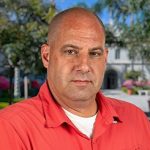
Mr. Doug Magedman
Abstract: The RING (Regional Incentive for the Next Generation) incentive is a free for educators and students cybersecurity program designed to be implemented in K-12 programs across the country. This program’s development and continued sponsorship is the National Security Agency’s Center for Academic Excellence for the Cybersecurity Community. Enabling STEM (Science, Technology, Engineering and Math) programs the opportunity to implement a cybersecurity curriculum in high schools across the nation will fundamentally impact the cybersecurity gap. A K-12 program that is engaging and thought provoking that not only contains a fully developed curriculum, but actual content, instructor training, free access to a cyber-range for both teachers and students, and a turnkey operation for teachers to monitor and manage students participation and success in the Canvas Learning Management System. All teachers need to have happen is a district level curriculum approval and the rest is a matter of personal preparation for a program that can be taught on the ground, online, and even asynchronously. This is a game-changer for preparing students for future follow-on education in cybersecurity as well as providing those not interested in a cybersecurity career with the tools and knowledge necessary to be a safe and responsible netizen.
Bio: Doug Magedman joined the University of San Diego (USD) Center for Cyber Security Engineering and Technology as an adjunct professor in January 2016. As a retired US Naval Officer and current civilian engineer with the US Naval Information Warfare Systems Command (NAVWAR), Magedman has been working with IT Systems Development and Acquisition within the Office of the Chief Engineer for nearly a decade.
Using Systems Thinking in Cross-functional Teamwork to Create Innovation
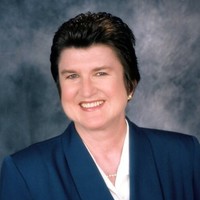
Dr. Julia Taylor
Abstract: Innovation is a huge challenge for companies, particularly those that rely on having state of the art products in order to stay in business. Those teams that incorporate Systems Thinking (big picture thinking) into their working processes are the teams that are effective when it comes to implementing new innovation. These teams have to plan and coordinate with many other departments, both before and during the implementation process. They can only do this effectively by being able to take different perspectives and integrate those perspectives into the overall strategy of the company going forward. This presentation will focus on the attitudes, intentions and actions of cross-functional teams.
Bio: Early in her career Dr. Julia Taylor worked in technical roles in a number of technology companies including Intel, Acurex and Buckman Laboratories. She then became interested in helping companies adapt to changing technologies and improving their approach to business and formed Taylor Success Systems consultancy to address this need.
Her background includes degrees in Chemistry and Electronics, plus an MBA in business and also a doctorate degree in Strategic Management.
Currently, she serves as Director of Outreach for INCOSE International, the Systems Engineering organization, and Director of Chapter Development for the San Diego Chapter of INCOSE. She represents the INCOSE local chapter on the San Diego County Engineering Council. She participates in IEEE and the American Chemical Society. She has written and presented a number of technical papers, as well as three business books. She currently works as a Management Consultant helping companies to diagnose problems and implement innovative new solutions. Her current emphasis is on systems approaches and using systems thinking to achieve long term business success.
Systems Engineering Validation of Legislative Statutes: Structural Analysis of Pennsylvania Statutes, 2012 Legislative Session
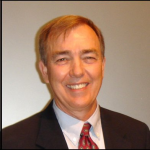
David Schrunk, MD (Co-Author: Maria Romero)
Abstract: The validation process of systems engineering (SE) is an essential element of its design methodology to achieve its intended use in its intended operational environment (ISO/IEC/IEEE 15288 2015). It is used to evaluate and confirm the design and predicted performance, or outcome, of engineered products and devices. Specifically, the legislative statutes of the State of Pennsylvania that were enacted in the 2012 legislative session were evaluated using previously developed problem-solving design criteria. Our study found that every legislative statute from the 2012 legislative session lacked several essential elements of problem solution, with the potential of decreased performance in terms of the public wellbeing, and that all the statutes should be referred to the legislature for corrective amendments or repeal. Based on the findings of this study, we recommend that the statutes of other U.S. State Governments undergo similar analyses to determine if the design defects and omissions discovered in this study are an isolated condition, or a more widespread problem that needs to be addressed.
Bio: David G. Schrunk, MD is an aerospace engineer and medical doctor. He is the founder and president of The Science of Laws Institute of Poway, California, and is the author of the book, THE END OF CHAOS: Quality Laws and the Ascendancy of Democracy. He is also a founding member of the new (established May 20220) INCOSE Working Group Systems Engineering and Lawmaking (SELAW).
Demonstrating Resilience as Systems Engineers
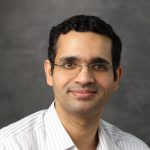
Sri Harsha, PhD
Abstract: As part of an integrated core team, the success of any System of Interest is dependent on the critical roles and success criteria set by Systems Engineers or SE team(s) assigned to that project. Currently, there is a shift in thinking model where certain individual behaviors, attitudes, and outlook that the System Engineers bring to the table are enabling the teams to achieve the common goals and launch products in the market.The key aspects of being a Systems Engineer now is not only limited to figuring out all the moving parts, interrelations and interactions between the constituent systems, but also sharing technical direction with multiple teams and leadership to manage the chaos, complexity and ambiguity, besides not losing sight of the big picture.It becomes very important to identify early in the SE journey how organizational leadership, hierarchy and authoritative structures will have an influence on the perception, position and contribution of Systems Engineers in an organization.
Bio: As an INCOSE Certified Systems Engineering Professional (CSEP), Dr. Sri Harsha has a collective experience of over a decade in the Systems Engineering domain witnessing the life cycle (concept to launch) of novel medical systems and applying Systems Engineering principles in Class I, Class II and Class III medical devices.
Sri Harsha has worked with customers and cross-functional teams to deploy several SE process improvement initiatives in requirements management, V&V and product launches. He managed the installed base of PET/MR imaging systems while at GE Healthcare, supported design controls activities for the novel Surgical Robotics platform at Johnson & Johnson and led Systems Engineering team at Abbott Diagnostics. He currently holds a SE leadership position at Dexcom driving adoption of Systems Engineering across the division.
Sri Harsha received his Ph.D. in Biomedical Engineering from Stony Brook University, NY. He is also a panel reviewer for INCOSE symposiums and a member of various working groups.
PyML Open Source System Modeling Library Introduction
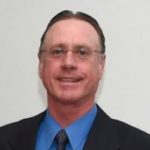
Ray Madachy, PhD
Abstract: The Python Modeling Library (PyML) is a new open source library for systems modeling, analysis, documentation and code generation. It includes the SysML and UML modeling languages with additional capabilities enabling advanced systems analysis. This presentation will overview the goals of the open source initiative, demonstrate initial capabilities with examples, how to use it, and future plans. The venue will be used to elicit feedback and suggestions from the audience to better serve the SE community going forward.
Bio: Raymond Madachy, Ph.D., is a Professor in the Systems Engineering Department at the Naval Postgraduate School. His research interests include system and software cost modeling for total ownership cost; affordability and tradespace analysis; modeling and simulation of systems and software engineering processes; integrating systems engineering and software engineering disciplines; systems engineering tool environments; and law systems. He recently created and is lead developer for the open-source Python Modeling Library (PyML).
His books include Software Process Dynamics, co-authoring Software Cost Estimation with COCOMO II, Software Cost Estimation Metrics Manual for Defense Systems, and What Every Engineer Should Know About Modeling and Simulation. He is currently writing Systems Engineering Principles for Software Engineers and What Every Engineer Should Know About Python.
Law System Use Case Modeling

Ray Madachy, PhD
Abstract: Use case modeling is predominant in systems and software engineering to help define system boundaries, external actors, stakeholder goals and the scenarios that achieve them. They serve as structured requirements, a basis for system development and testing (often called “use case driven” development). Since law systems are also human-engineered systems, the same methods are applied to help gain insight into the law development process to help improve it. However, there are contrasts from traditional systems composed of software, hardware, people, facilities, etc. This research also investigates the degree to which use case modeling is applicable to specifying and analyzing law systems, and how to best adapt the modeling methods.
Bio: See previous.
Leaving No One Behind in Naval Digital Transformation
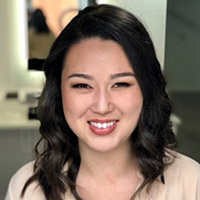
Ms. Chelsea Ballinger
Abstract: There is a unique dichotomy in the technological advancement of this historic institution. On one hand, there are agencies building out what was once considered science-fiction – creating innovations that have changed the world. However, on the other hand, there is a centuries old infrastructure – saturated in history and legacy. With the evolution of modern threats, the need for agile information and data is eminently critical for the U.S. Navy. In a new strategic push for a Digital Transformation there is a need to address this historic side of the Navy: to engage leadership in new ideas, motivate the existing employee base to learn new skills, and recruit more innovative thinkers to join the movement. This talk will focus on the human element of the full implementation of modernization and Digital Transformation.
Bio: Ms. Chelsea Ballinger is a San Diego native and Systems Engineer for Booz-Allen-Hamilton where she serves as a Lead Engineer utilizing her diverse background and experience to serve as ‘pinch-hitter’ for mission and client needs. Covering diverse technical experience through all phases of project development, Chelsea has leveraged her operational knowledge base to solve system of systems engineering challenges and develop enterprise-wide technical strategy.Chelsea holds a Bachelor’s in Physics from UC San Diego and a Master’s in Mechanical Engineering from San Diego State University. She is also an officer on the INCOSE San Diego board of directors (BOD), serving as Director of University Relations.
Systems Engineering and Photography? You Bet!

Mr. Greg Bulla
Abstract: What does it take to get great photographs? Like systems engineering, a disciplined approach! While photography is a combination of technical skill and artistic vision, there are also many processes involved, which are based on questions: What do you want to photograph? What are the conditions? What are your tools (and do you know them well enough to use them)? Like systems engineering, taking the right approach in photography can put you in the best position for success. This presentation will discuss the fundamentals of successful modern day digital photography and how they align with SE practices.
Register HERE
